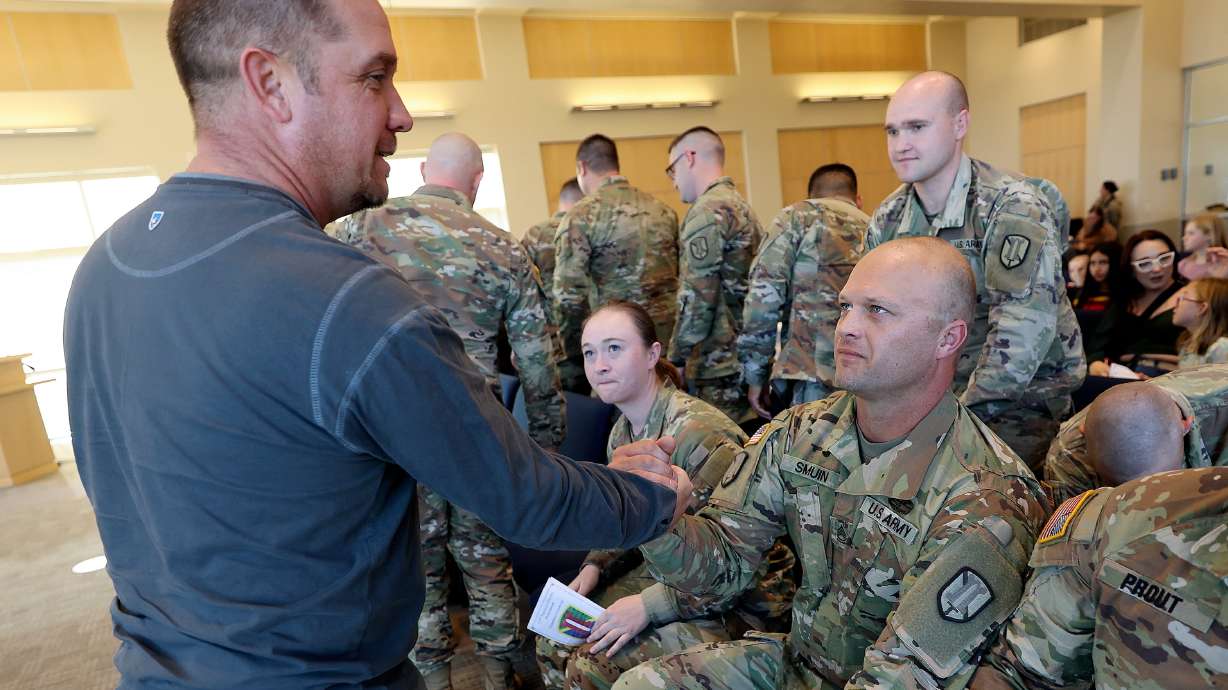- Veterans with PTSD face challenges during July Fourth celebrations due to fireworks, crowded spaces and routine disruptions.
- Roger Rivera, a veteran and mental health expert, offers strategies to support veterans' mental health.
- Rivera emphasizes creating safe spaces and spreading awareness about veterans' invisible wounds.
SALT LAKE CITY — Crowded spaces, loud fireworks and unexpected changes in routine can all be detrimental for veterans struggling with mental health diagnoses such as bipolar disorder and PTSD. The nation's celebration can often feel stressful and panic-inducing for those who fought for our freedoms.
Roger Rivera, a veteran and nurse practitioner, understands from a firsthand perspective how hard the Fourth of July can be for veterans. To respect and support veterans, he suggests we work to help them feel safe on the holiday amid festivities.
A Marine Corps veteran himself, Rivera has seen the effects combat and serving can have on veterans.

"The majority of my friends are veterans as well. I understand the intricacies behind being a veteran," Rivera said. "I served close to eight years. … It was difficult times back then with multiple deployments. That paved the way to a career in the medical field."
Rivera first began his career in trauma surgery, followed by primary care and finally the mental health area. During his time in trauma surgery, he realized that many of the most severe cases he would see were individuals with some kind of psychiatric need, whether it be bipolar disorder, schizophrenia or something in the same realm.
Soon, Rivera decided that while he valued his time in trauma surgery and primary care, he needed to do more to help those struggling with invisible pain such as bipolar disorder.
We're waving our flags of freedom, but we also have to honor those who carry those invisible wounds.
–Roger Rivera
Today, Rivera strives to do "everything and anything possible" to help the individuals. Not only does he work with clients daily, but he also provides educational lectures and classes about how psychiatric disorders can affect individuals and families. The first step is often helping a client to stabilize chemically, typically through medication. After that point, it can be easier to use social services, therapy and other resources to maintain balance, he said.
Even when a veteran or individual is feeling relatively stable in their environment, events such as the Fourth of July can be especially triggering. Rivera describes the emotions and sensations as a "fight or flight" feeling leading to anatomic reactions such as a racing heart, chest pain, excessive sweating or nausea.
"The Fourth of July sparks a lot of emotions," Rivera explained. "Loud noises could serve as a trigger for some people, which could be a reminder. The unexpected fireworks and large gatherings also play a role."
Additionally, breaking established routines can lead to excessive panic, discomfort and dissociation, according to Rivera. To help make the holiday more comfortable for veterans with psychiatric disorders, Rivera suggests four methods.
- Sound-dampening techniques: Use noise-canceling headphones or earplugs, white noise machines, or listen to calming music through noise-canceling headphones to soften firework displays.
- Medication and routine continuity: Set reminders and schedule ahead to avoid missed doses, including making sure to have enough medicine on hand to account for travel or other disruptions. Maintain as much of a normal routine as possible despite holiday events, and talk to your health care provider about how to manage doses during stressful times.
- Grounding and relaxation techniques: Practice mindfulness, deep breathing exercises, or sensory grounding to stay present and manage anxiety during fireworks, in a large crowd, or other overwhelming situations. Rivera recommends the 5-4-3-2-1 method (identifying five things you can see, four things you can touch, three things you can hear, two things you can smell, and one thing you can taste) to distract from anxiety-provoking noise. Box breathing and other grounding techniques can also be helpful.
- Creation of safe spaces: Create designated quiet areas and safe, comfortable spaces at home, plan exit strategies from events that may become overwhelming, and involve supportive friends or family for emotional support.
Rivera and many of his colleagues believe that helping our veterans navigate the holiday is an important, though frequently overlooked, element of the Fourth of July.
"Spreading awareness is spreading knowledge, and knowledge is power. The more we understand certain attributes of the human mind, we can better help those we care for," Rivera said. "We're waving our flags of freedom, but we also have to honor those who carry those invisible wounds. … If we truly value our veterans, we have to create communities that reflect that. Let this Fourth of July be a reminder that freedom also means feeling safe in our minds."
For veterans or individuals struggling with a mental health crisis, Rivera recommends meeting with a therapist, a local provider or using online resources to help find alternative treatments.










